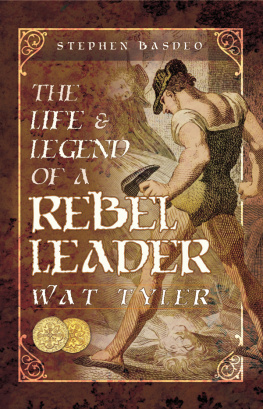Martin Stephen - The rebel heart
Here you can read online Martin Stephen - The rebel heart full text of the book (entire story) in english for free. Download pdf and epub, get meaning, cover and reviews about this ebook. genre: Detective and thriller. Description of the work, (preface) as well as reviews are available. Best literature library LitArk.com created for fans of good reading and offers a wide selection of genres:
Romance novel
Science fiction
Adventure
Detective
Science
History
Home and family
Prose
Art
Politics
Computer
Non-fiction
Religion
Business
Children
Humor
Choose a favorite category and find really read worthwhile books. Enjoy immersion in the world of imagination, feel the emotions of the characters or learn something new for yourself, make an fascinating discovery.

- Book:The rebel heart
- Author:
- Genre:
- Rating:5 / 5
- Favourites:Add to favourites
- Your mark:
- 100
- 1
- 2
- 3
- 4
- 5
The rebel heart: summary, description and annotation
We offer to read an annotation, description, summary or preface (depends on what the author of the book "The rebel heart" wrote himself). If you haven't found the necessary information about the book — write in the comments, we will try to find it.
The rebel heart — read online for free the complete book (whole text) full work
Below is the text of the book, divided by pages. System saving the place of the last page read, allows you to conveniently read the book "The rebel heart" online for free, without having to search again every time where you left off. Put a bookmark, and you can go to the page where you finished reading at any time.
Font size:
Interval:
Bookmark:
Martin Stephen
The rebel heart
Prologue
February, 1598 London
It should be more difficult to kill a Queen. The final simplicity of the act diminished it, reduced it to something mundane. The King of Spain, the King of France, the King of Scotland, all gathering like vultures over the throne of England; its aged, childless Queen surely soon to die. So what if that death were hastened? What difference in a few months? Or a year? To kill an old woman was not to go against nature, merely to speed it up a little.
The winter had been bitter, and a biting, cutting wind hacked through London, as if determined to scour the flesh off human backs. The Queen was an extraordinary sixty-five years old, and felt the cold more and more. The order had gone out to stoke up the fires. The chimneys in the Palace were badly swept, and the sharp tang of woodsmoke mixed with the smooth perfumes and acrid sweat of overdressed men. The wonderful symmetry of the dark, arched beams paraded the length of the Great Hall, impervious to the squabbling beneath.
The blustering wind caused the fires to blow back, and every so often wafted a stench of shit from some forgotten drain, or from a curtained alcove where a drunken courtier had dropped his load. Corruption. Foul bodies. They were all there, the colour of their finery lighting up the sombre hangings of the Presence Chamber at Greenwich Palace: the fat clergy and the dandified nobles, the wrinkled and the fresh-faced, united in their greed and craving for power; the parasites who fed off the dying flesh of this tired, decaying old Court, gathered like crows over rotting meat.
Three men stood out, each with his court in miniature assembled round him: Sir Robert Cecil; Sir Walter Raleigh. And the Earl of Essex. His was the largest group, the noisiest, the centre of this firmament. Tall, acknowledging his own arrogance and impossibly good-looking, Robert Devereux, 2nd Earl of Essex, was laughing gaily as if he did not have a care in the world, a carefree young man surrounded by the youngest men at Court. As he laughed, so did others, even some who thought they hated him. It was impossible not to be drawn in, infected by his gaiety. Alone of the assembled Bishops and courtiers, nobles and servants, his eyes did not continually flick to the door, guarded by a gold-chained and velvet-clad gentleman. Was the Queen even now making her move to chapel?
Routine. Every Sunday at Greenwich the Queen exited from her private chambers and walked across the Presence Chamber over fresh hay strewn on the floor, with tiny, fragrant strands caught in the bottom of the fine tapestries hung on the walls. The door would be flung open; the procession would start. First a gaggle of gentlemen, Barons, Earls and Knights of the Garter, all richly dressed and bareheaded, puffed up with privilege and false pride, security the last thing on their minds. Then the Lord High Chancellor, bearing the seal of office in a great red purse, flanked by a man carrying the royal sceptre and another the sword of state in its red scabbard, studded with golden fleur-de-lis.
Ritual, ceremony, routine: the false gods by which false monarchs impose their power on poor and flawed mortals. Then would come the true false god: Queen Elizabeth I of England.
She knew how to make an entrance. The ladies-in-waiting were as comely and beautiful as she was ragged with age, their high chins and firm steps seeming to accentuate the line of their bodies beneath the white, virginal court dresses they wore. It took fifty men to guard the Queen on the short journey from her apartments to the chapel, each one armed with a gilt halberd, sparkling in the sunlight that drenched in through the high windows.
All this pomp and pageantry for an old, old woman in a red wig, her teeth black, with small black eyes, a hook nose and a thin mouth. At least she had not gone to fat in her dotage, but the makeup lay thick on her pasty face, threatening to run on a hot day.
He lurked at the back of the crowd, almost leaning against the tapestried wall in his desperate desire to seem calm. Yet it was wrong to be calm. No one here was calm, when fortunes could be made by a word from the Queen; or whole careers vanish in an instant by the absence of a glance. To be nervous was to be normal in this strange circus of dreams. He had to time this perfectly. Yet now the moment had come he was calm, almost unnaturally so. The greatest desire of those present was to speak to the Queen, kneel before her and pray that they might be one of the privileged few she invited to stand, or perhaps even one of the extraordinarily lucky men for whom she took off her glove and invited to kiss her jewelled, liver-spotted hand. It was known that she rarely noted anyone before she had progressed the first five or six yards, so the courtiers would rush for the middle ground. When the door crashed open, the crowd would surge forward, the noise would rise to the rafters, the petitioners would move through them or go round the side to take up their positions on either side of the Queen. Bustle, movement, noise: the courtiers half expecting to be brushed aside by the guards. Twenty seconds to burst through to where the Queen stood by the newly opened door, soaking up the attention, before she started to walk. The Lord High Chancellor would be way ahead of her by then, her ladies-in-waiting still gathered behind her in the private apartments and the guards not yet formed up.
That was the moment when a man with faith could kill a Queen.
The pistol had been loaded, primed and checked ruthlessly. It was hidden in the servant's tunic which he would rip open as he lunged forward. Its fastenings were loosened, hanging by only one or two threads in preparation. The head. It had to be the head. God knew what corsetry and whalebone the old lady had on under her gown and mantle to turn aside a blade. With his left hand he would tear open his mantle and bring out the pistol, put it to her head and pull the trigger, while with his right hand he would grab the dagger also hidden under his clothing. If, God forbid, the pistol misfired he would plunge the dagger into her right eye, the one nearest to him.
He would die; he knew that. He prayed he would have time to do it by his own hand. If not, and before they laid him on the rack, he would bite his own tongue off and bleed to death.
Obsessed with his mission, he hardly noticed the thin, slight figure standing a little distance behind him, a man in his mid-thirties with a thin scar running from his chin to just below his right ear. He was drab in appearance, nondescript, looking like one of the lawyers who sometimes acted as clerks to the great men in Court, and who occasionally, as a treat, were allowed into one of the Anterooms so they could tell their families they had seen the Queen. He was the only person hanging back at the rear of the crowd. The assassin dismissed him. He looked to pose no physical threat, and by the time he realised what was happening the Queen would be dead.'
He tensed. Was that a scuffling behind the great door? Yes! It was opening, scraping on the floor as a small stone in the freshly strewn hay caught under its bottom edge. The advance party moved forward, the sceptre seeming to capture the light and hurl it back. Then he saw Gloriana, dressed in white with a black silk mantle, gazing imperiously, almost petulantly, at the assembled horde. Please, dear God! Allow this act in your name! Now!
A great silence descended inside his head. His tunic came undone with effortless ease. He saw a button fly off and bounce one, two, three times on the stone floor. His hand grasped the familiar smoothness of the pistol's butt. He took his first step forward, the weapon already halfway out.
The thin, nondescript man leapt forward, clutched the assassin. It was as if two iron pincers closed round his upper body, the pain and shock so sudden that he lost all his breath. His arms pinioned, the pistol hung from his immobilised hand, half jammed in his doublet. Instinctively he tried to twist round, to face whoever had attacked him, his movements forced by frenzy. The slight man did not loosen his grip but turned with him. Off balance, the hugging couple collapsed on to the wall where there was a gap between two tapestries. And vanished.
Font size:
Interval:
Bookmark:
Similar books «The rebel heart»
Look at similar books to The rebel heart. We have selected literature similar in name and meaning in the hope of providing readers with more options to find new, interesting, not yet read works.
Discussion, reviews of the book The rebel heart and just readers' own opinions. Leave your comments, write what you think about the work, its meaning or the main characters. Specify what exactly you liked and what you didn't like, and why you think so.









